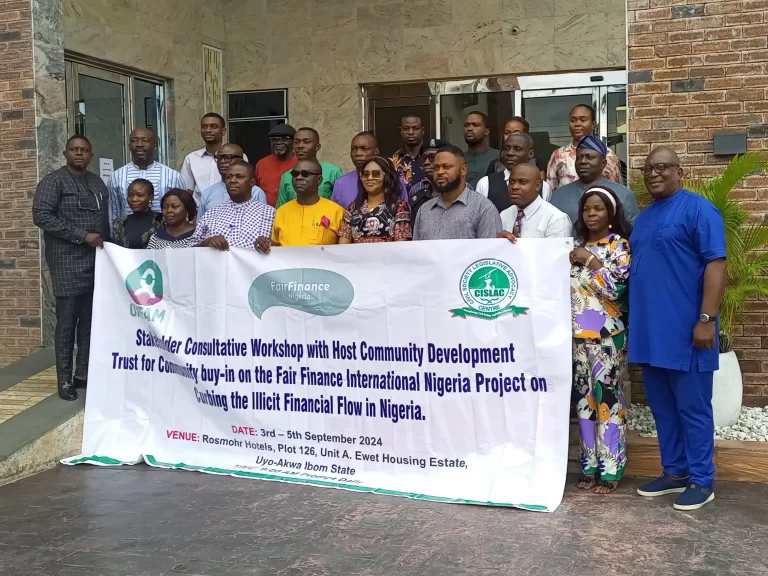Worried by the rate of illicit financial flows in Nigeria and outside, a coalition of Civil Society Organisations, CSOs, under the umbrella of Fair Finance has called on the National Assembly to strengthen legislation that would proffer stiffer punishments for offenders.
They also urged the executive to muster the political will to implement the legislation and bring perpetrators to book irrespective of social standing.
This was part of the communiqué issued at the end of a two-day- stakeholder consultative workshop with Host Community Development Trust, HCDTF, in Uyo, Akwa Ibom State, organised by the Civil Society Legislative Advocacy Centre, CISLAC, and supported by Fair Finance International and Oxfam in Nigeria.
The organisations observed that illicit financial flows, IFFs, are predominantly seen around the oil sector and the financial institutions, even as they called for proper investigations into the sectors.
They noted that IFFs deny government the needed revenue to finance public budgets and deprive communities of critical social goods and services, such as health, education, public security, and agricultural inputs.
They, therefore, urged government to leverage modern technology, strengthen financial management systems, as well as provide adequate funding to security and regulatory agencies to tackle IFFs.
The forum revealed that the essence of the meeting was to extract communities’ buy-in to the forum’s mandate on curbing IFFs in Nigeria called for financial literacy and resources to help communities make informed financial decisions.
They regretted that inadequate awareness of relevant policies and laws among community members constrains them from holding regulatory agencies, corporations, and financial institutions accountable for their human rights obligations.
While calling on the oil community members to report issues of suspected illicit financial flows in their area to appropriate authorities, the organisations sued for the protection of whistleblowers through adequate implementation of requisite laws and policies.
The communique read in parts: “There should be effective legislation and strong political will to implement the laws and support institutions in fighting IFFs. Government should leverage modern technology and strengthen financial management systems to curb IFF.
“Adequate funding and proper equipping of the security and regulatory agencies. Adequate information dissemination on illicit financial flows using mass media and other relevant communication channels.
“The absence of legislation to protect whistleblowers impedes operationalisation of the whistleblower policy against exposing perpetrators of base erosion and illicit financial flow.”
Participants at the event included representatives of HCDTs, EFCC, NSCDC, Nigeria Police, the Akwa Ibom State Ministries of Justice, Information, Environment and Mineral Resources, chairman and vice chairman of Ibeno LGA, CSOs and the media.
